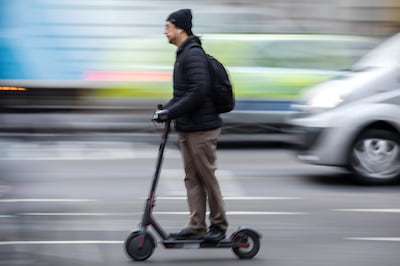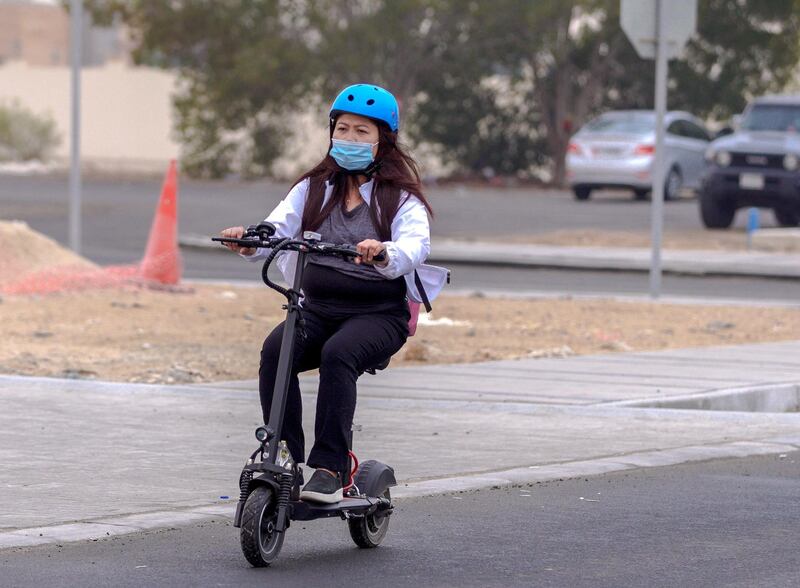As I wrote a few weeks ago, the changes announced to the UAE’s legal system are of huge importance.
They recognise the country’s evolution over the past few decades, whether in terms of residency regulations or the laws relating to people's private lives. It is right that not just our laws, but the procedures of our courts, should evolve as well. And the establishment of ‘one-day’ courts to expedite the handling of minor misdemeanours reflects that evolution.
I applaud, therefore, the statement by Minister of Justice Sultan Al Badi that the decision to introduce these courts is part of an overall effort to “strengthen efforts to enhance the legislative and legal environment.” I am sure these courts will have plenty to do. A quick and simple presentation of evidence, a plea of guilty or not guilty, and it should be possible to deal swiftly with most cases. Without wishing to overload these new courts rapidly, I believe there is scope for a new law to be introduced urgently to add to their work.
A new menace has appeared in our towns and cities: the electric scooters that whizz around on pavements and streets. Too many of the riders, both teenagers and those old enough to know better, adhere neither to common sense nor safety precautions and can pose a danger to both pedestrians and drivers.
There are gains to be made in harmonising rules and laws, where appropriate.
The scooters can be particularly dangerous at night since most, like ordinary bicycles, don’t carry any lights. I am a cautious driver, especially when it’s dark, and I haven’t hit one yet, though I’ve had a few narrow escapes. A few days ago I was grumbling to a senior police officer about this. To my amazement he told me that there were no rules requiring either electric scooters or bicycles to have lights.
Perhaps that is something our authorities could address. A light touch approach might suffice. First offence, a warning. Second offence, a fixed penalty fine. Third offence, confiscation of the vehicle. Fourth offence, straight to the ‘one-day’ court. The message would, I suspect, get across to people pretty quickly.

While each country has its own special characteristics that affect its legal system, there are, I think, gains to be made in harmonising rules and laws, where appropriate. That is applicable not just to personal legislation or to traffic laws but in other areas, too.
My second proposal for new legislation relates to a particular passion of mine: conservation of wildlife and the environment. In this case, a simple ministerial decision is required.
In early December, our neighbour, Oman, banned the import and use of the drug Diclofenac for veterinary purposes. Underlying the decision was the knowledge that in South Asian countries Diclofenac has been directly responsible for a collapse of over 90 per cent in the population of at least three species of vultures because they feed on the carcasses of domestic animals treated with the drug.
Oman’s decision to ban Diclofenac followed earlier decisions by India, Pakistan, Bangladesh and Iran, with the Oman's assistant director of animal wealth at the Ministry of Agriculture, Fisheries and Water Resources saying: “Based on the overwhelming evidence that Diclofenac is fatally poisonous to birds of prey and the availability of safe alternatives we decided to prohibit its use in veterinary care.”
Our own Ministry of Climate Change and the Environment thus far has taken a different approach.
In an email sent to me a fortnight ago, the Ministry confirmed that Diclofenac is not thus far banned in the UAE because, it said, no scientific report about the toxicity of the drug for any animals had been received.
However, extensive international studies have been undertaken that could perhaps encourage the Ministry to issue the relevant decision to add Diclofenac to the banned list in the Emirates. It is a little step but one which, like lights on electric scooters and bicycles, could serve as a minor building block in our continued efforts to forge ahead to a brighter future.
Peter Hellyer is a UAE cultural historian and columnist for The National






